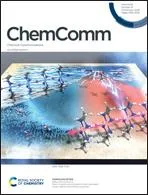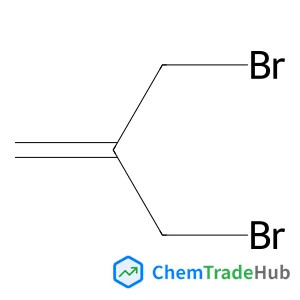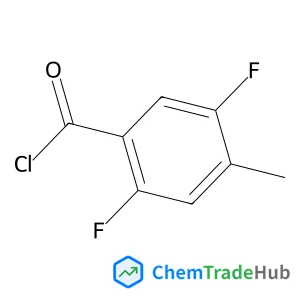Synthesis and in vitro assessment of a bifunctional closomer probe for fluorine (19F) magnetic resonance and optical bimodal cellular imaging
Literature Information
Lalit N. Goswami, Aslam A. Khan, Satish S. Jalisatgi, M. Frederick Hawthorne
The design, synthesis and in vitro assessment of a bifunctional imaging probe for dual fluorine (19F) magnetic resonance spectroscopy (19F-MRS) and fluorescence detection is reported. Eleven copies of 3,5-bis(trifluoromethyl)phenyl and a single copy of a sulforhodamine-B were covalently attached to a closo-B122−-core via suitable linkers. The 19F-MRS and fluorescence imaging shows that, this novel bimodal imaging probe was readily taken up by the cells in vitro after co-incubation.
Related Literature
IF 6.222
Catalytic depolymerization of alkali lignin in ionic liquids on Pt-supported La2O3–SO42−/ZrO2 catalystsIF 6.367
Visible light-driven cross-coupling reactions of alkyl halides with phenylacetylene derivatives for C(sp3)–C(sp) bond formation catalyzed by a B12 complexIF 6.222
Selective light driven reduction of CO2 to HCOOH in water using a {MoV9}n (n = 1332–3600) based soft-oxometalate (SOM)IF 6.222
Microscopic insights into long-range 1D ordering in a dense semi-disordered molecular overlayerIF 6.222
An elemental S/P photocatalyst for hydrogen evolution from water under visible to near-infrared light irradiationIF 6.222
An aminophosphonate ester ligand-containing platinum(ii) complex induces potent immunogenic cell death in vitro and elicits effective anti-tumour immune responses in vivoIF 6.222
Back coverIF 6.222
Heterogeneous toroidal spiral particles for islet encapsulationIF 6.843
Novel aqueous amine looping approach for the direct capture, conversion and storage of CO2 to produce magnesium carbonateIF 6.367
Source Journal
Chemical Communications

ChemComm publishes urgent research which is of outstanding significance and interest to experts in the field, while also appealing to the journal’s broad chemistry readership. Our communication format is ideally suited to short, urgent studies that are of such importance that they require accelerated publication. Our scope covers all topics in chemistry, and research at the interface of chemistry and other disciplines (such as materials science, nanoscience, physics, engineering and biology) where there is a significant novelty in the chemistry aspects. Major topic areas covered include: Analytical Chemistry Catalysis Chemical Biology and medicinal chemistry Computational Chemistry and Machine Learning Energy and sustainable chemistry Environmental Chemistry Green Chemistry Inorganic Chemistry Materials Chemistry Nanoscience Organic Chemistry Physical Chemistry Polymer Chemistry Supramolecular Chemistry
Recommended Compounds
Recommended Suppliers
 Shanghai KaiTe Biotechnology Co., Ltd.
Shanghai KaiTe Biotechnology Co., Ltd. Hangzhou Changhe Chemical Industry Co., Ltd.
Hangzhou Changhe Chemical Industry Co., Ltd. Polysius AG
Polysius AG Shenzhen Zhongshenghe Real Estate Co., Ltd.
Shenzhen Zhongshenghe Real Estate Co., Ltd. Galvano Wullimann AG
Galvano Wullimann AG Shenzhen Linchuan Precision Technology Co., Ltd.
Shenzhen Linchuan Precision Technology Co., Ltd. Xi'an Shengshida Cleaning Equipment Co., Ltd.
Xi'an Shengshida Cleaning Equipment Co., Ltd. Dongguan Koryada Chemical Technology Co., Ltd.
Dongguan Koryada Chemical Technology Co., Ltd. SGI - Prozesstechnik GmbH
SGI - Prozesstechnik GmbH LGC Ltd.
LGC Ltd.












![224-53-3 - Dibenzo[c,h]acridine 224-53-3 - Dibenzo[c,h]acridine](/structs/224/224-53-3-97c9.webp)
![57423-71-9 - (1R,2R,4R,6S,11R,12S,15R,18S,19R,20S,21S,23R,26R)-15-Hydroxy-11,18,21-trimethyl-5,17,24,28,29-pentaoxanonacyclo[17.9.1.1~1,20~.0~2,12~.0~4,6~.0~6,11~.0~15,19~.0~18,23~.0~21,26~]triacont-8-ene-10,16,25
,30-tetrone 57423-71-9 - (1R,2R,4R,6S,11R,12S,15R,18S,19R,20S,21S,23R,26R)-15-Hydroxy-11,18,21-trimethyl-5,17,24,28,29-pentaoxanonacyclo[17.9.1.1~1,20~.0~2,12~.0~4,6~.0~6,11~.0~15,19~.0~18,23~.0~21,26~]triacont-8-ene-10,16,25
,30-tetrone](/structs/574/57423-71-9-78dc.webp)
